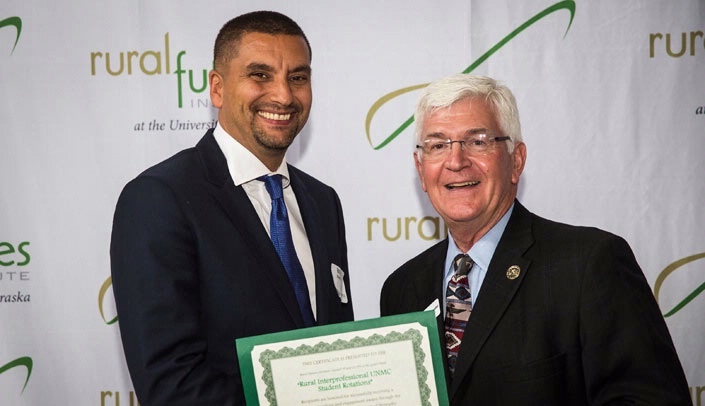Patrik Johansson, M.D., associate professor, health promotion, social & behavioral health, and director of the Rural Health Education Network, College of Public Health, was honored at the Oct. 21 Rural Futures Conference in Lincoln. He was recognized for receiving three consecutive $25,000 teaching and engagement awards from the Rural Futures Institute (RFI) since 2012. He was principal investigator/co-principal investigator on:
- “The Rural Public Health Undergraduate Student Research Project” – for student research projects that involve a community partner and address a public health priority articulated by the community partner. Collaborators were state colleges in Chadron, Peru and Wayne.
- “Principles of Community Engagement in Public Health: Service Learning, Community-based Participatory Research, Leadership, and Civic Engagement” – for development of an innovative online undergraduate course that integrated leadership and service learning components and included modules created by public health departments, elected offices, tribal organizations and critical access hospitals in Nebraska. Eighteen Peru State College students enrolled in the course, and all students evaluated it as challenging. Done in partnership with Kyle Ryan, Ph.D., associate professor of kinesiology, School of Education, Peru State College.
- “The Rural Interprofessional UNMC Student Rotations” – included all six UNMC colleges in partnership with the East Central District Health Department in Columbus, Neb. During the three-week rotation, students worked in interprofessional teams under the supervision of a public health practitioner and engaged in team-based service-learning activities, focused on tobacco policy, that aligned with the health department’s community health improvement plan.
